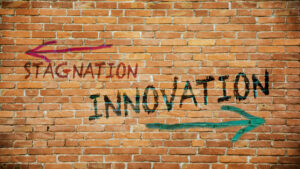The rapidly evolving technological era has transformed the role of a CEO. Leaders can no longer rely solely on traditional business acumen; they must adapt to the ever-changing workplace landscape and cultivate a diverse skill set to navigate its complexities. Mastering modern leadership is imperative for CEOs, enabling them to drive innovation, foster agility and steer organizations toward sustainable growth and success. Central to effective guidance is cultivating a strategic mindset – comprehending emerging technologies and disruptive models and embracing continuous learning and adaptability. This mindset fosters a pioneering culture where experimentation thrives and failures become learning opportunities. It empowers leaders to anticipate and respond swiftly to disruption, ensuring competitiveness and relevance.
However, effective direction transcends technological prowess and data-driven approaches. It demands emotional intelligence, empathy and purpose-driven management. In this era of constant change, CEOs must possess self-awareness, inspire teams and communicate compelling visions that resonate with stakeholders.
Furthermore, progressive leaders champion social responsibility by embedding sustainable practices into organizational cores and promoting diversity and inclusion to spur creativity and reflect customer multiplicity. Mastering modern governance is multifaceted, requiring an exceptional blend of technical acumen, strategic foresight and human-centric skills. It necessitates challenging traditional paradigms, embracing change and fostering cultures that thrive.
This comprehensive article reveals the essential mindsets and skills modern CEOs need to excel as pioneering leaders, exploring cultivating strategic mindsets, maximizing data-driven decision-making, building future-focused organizations and leading with empathy and purpose. Join us as we uncover insights and strategies for mastering the art of visionary authority.
Cultivating A Digital Mindset: Embracing Innovation And Adaptability
 In today’s quickly changing technological landscape, possessing a strategic mindset is crucial for businesses to thrive. It requires a willingness to embrace continuous learning, adaptability to change and encouragement of experimentation, while also changing how one thinks about efforts that fall short of their goal. By cultivating a forward-thinking perspective, organizations can foster a culture of progression that drives growth and success. There are three core tenets to doing this.
In today’s quickly changing technological landscape, possessing a strategic mindset is crucial for businesses to thrive. It requires a willingness to embrace continuous learning, adaptability to change and encouragement of experimentation, while also changing how one thinks about efforts that fall short of their goal. By cultivating a forward-thinking perspective, organizations can foster a culture of progression that drives growth and success. There are three core tenets to doing this.
- Understanding The Digital Landscape
Adapting to the evolving digital landscape requires comprehending the rapid pace of technological innovations and the various forces reshaping industries. Companies must stay informed about emerging advancements and be prepared to integrate them into their operations. Additionally, they must anticipate and respond to pioneering business models that challenge conventional approaches.
Emerging technologies such as artificial intelligence, machine learning, the internet of things, and blockchain are gaining prominence. Additionally, disruptive business models like the sharing economy and subscription services are becoming more prevalent.
- Embracing A Growth Mindset
At the core of a strategic mindset lies a growth perspective – a belief that abilities can be developed through dedication and perseverance. Continuous learning is paramount, as professionals and organizations must be willing to acquire new skills and unlearn practices that are outdated. Adaptability is equally crucial, enabling companies to pivot and thrive amidst constant interruptions.
- Fostering A Culture Of Innovation
A progressive mindset involves cultivating an environment that encourages innovation within an organization. This culture encourages experimentation, where employees are empowered to explore new ideas, take calculated risks and challenge the status quo. Framing efforts that miss the mark as learning opportunities is essential, as it creates a setting where individuals feel safe to push boundaries and explore new possibilities without undue fear of repercussions. Missed efforts provide valuable insights, enabling organizations to pivot and refine their strategies.
Encouraging experimentation is important for fostering innovation. This can involve dedicating resources to research and development, creating innovation labs or implementing agile methodologies that promote iterative development and rapid prototyping. By providing a safe space for exploration, companies can unlock their workforce’s creativity and problem-solving capabilities.
Promoting a progressive perspective is no longer an option but a necessity for businesses to remain competitive and relevant. By understanding the evolving landscape, embracing a growth mindset and fostering a culture of creativity that encourages experimentation and celebrates efforts that miss the mark, organizations can position themselves to thrive in an ever-changing world.
Leveraging Data-Driven Decision Making
Data is an invaluable asset for organizations, providing insights that can drive intelligent decision-making and foster an assertive advantage. To harness the full potential of information, leaders must prioritize analytics and information literacy while upholding ethical practices. Next, we delve into the critical role of analysis and comprehension in ineffective leadership, then explore strategies for harnessing the power of data to drive informed decision-making and maintain a strategic edge.
Strategies For Harnessing The Power Of Data
Taking advantage of data analytics is paramount for organizational success. These following strategies collectively enable businesses to innovate, make well-informed decisions and maintain a contending edge in their respective industries:
Utilizing The Full Potential Of Analytics. Data analytics play a pivotal role in uncovering patterns, trends and actionable insights from the vast troves of data organizations collect. Effective data collection and management strategies are crucial to ensuring data quality, accessibility and compliance with regulatory requirements.
Data visualization tools and techniques enable leaders to interpret complex data sets in a clear and comprehensible manner. These tools transform raw data into visually compelling representations, such as charts, graphs and interactive dashboards, facilitating data-driven storytelling and enhancing decision-making processes.
Developing Data Literacy. To truly leverage the power of data, organizations must prioritize developing literacy across their workforce. This involves upskilling employees with the necessary skills to understand, analyze and communicate data-driven insights effectively.
Upskilling initiatives can take various forms, including formal training programs, workshops and online courses. Additionally, organizations should encourage a culture of continuous learning, where employees are encouraged to stay abreast of the latest data analytics tools and techniques.
Collaborating with data experts, such as data scientists and business intelligence analysts, can accelerate the development of data literacy within an organization. These experts can provide guidance and mentorship and share best practices for data-driven decision-making.
Enacting Ethical Data Practices. As organizations increasingly rely on data to drive their strategies, it is imperative to prioritize ethical data practices. This encompasses two crucial aspects: data privacy and security, as well as responsible AI implementation.
- Ensuring Data Privacy And Security
With the proliferation of data collection and analysis, organizations must prioritize data privacy and security to maintain consumer trust and comply with evolving regulations. This involves implementing robust data governance frameworks, employing encryption and access controls and ensuring transparent communication about data collection and usage practices.
- Implementing Responsible AI
The integration of artificial intelligence (AI) and machine learning algorithms into decision-making processes introduces potential risks, such as biased or opaque models. Responsible AI implementation involves addressing these risks through rigorous testing, ongoing monitoring, and the adoption of principles like fairness, accountability and transparency.
By embracing ethical data practices, organizations can mitigate risks, build trust with stakeholders and ensure that data-driven decision-making aligns with societal values and ethical standards.
Utilizing evidence-based decision-making has evolved from being optional to becoming essential for organizations aiming to sustain a striving advantage. By harnessing the power of data analytic
Building A Digital-First Organization
 Organizations must embrace a future-focused mindset to remain competitive and relevant. This entails driving comprehensive transformation initiatives, fostering a tech-savvy workforce and nurturing a collaborative ecosystem that fosters innovation.
Organizations must embrace a future-focused mindset to remain competitive and relevant. This entails driving comprehensive transformation initiatives, fostering a tech-savvy workforce and nurturing a collaborative ecosystem that fosters innovation.
Driving Digital Transformation
Technological transformation is a fundamental shift in an organization’s strategy, processes and culture, employing innovative technologies to create new value propositions and enhance operational efficiencies. Successful transformation requires a holistic approach that addresses multiple facets of an organization.
- Integrating Innovations. Integrating cutting-edge solutions lies at the heart of transformation. This involves adopting advancements such as cloud computing, artificial intelligence, Internet of Things (IoT), and mobile technologies to streamline operations, enhance customer experiences and unlock new revenue streams.
- Optimizing Processes. As new technologies are integrated, organizations must reevaluate and optimize their processes to fully capitalize on the benefits. This may involve automating manual tasks, eliminating redundancies and redesigning workflows to enhance efficiency, agility and customer-centricity.
Fostering A Digital-Savvy Workforce
Building a future-focused organization requires cultivating a workforce that possesses the skills and mindset to thrive in the modern era. This needs a concerted effort from leadership to prioritize technological skill development and implement effective change management strategies.
- Developing Skills: Developing technological capabilities within the workforce is paramount. This can be achieved through various initiatives such as literacy training programs, mentorship opportunities and encouraging continuous learning. Organizations should also consider upskilling existing employees and attracting top talent to build a strong competency base.
- Implementing New Management Strategies: Transitioning to a future-focused organization often involves significant cultural and operational shifts. Effective changes are critical to minimize resistance and ensure the smooth adoption of new processes and technologies. This may involve clear communication, stakeholder engagement and providing support structures to help employees navigate the changes.
Nurturing A Collaborative Ecosystem
Originality rarely occurs in isolation. Building a future-focused organization necessitates nurturing a collaborative ecosystem that fosters idea exchange, co-creation and collective problem-solving.
- Partnering With Startups: Partnering with innovative startups can provide organizations with access to cutting-edge technologies, fresh perspectives and agile development methodologies. These collaborations can take various forms, such as investing in startups, establishing accelerator programs or engaging in joint development projects.
- Embracing Open Innovation: Open innovation involves actively seeking and employing external sources of knowledge and expertise to fuel advancement within an organization. This can include crowdsourcing ideas, collaborating with academic institutions or engaging with industry consortiums and communities. By mastering this, organizations can tap into diverse perspectives and accelerate their transformation journeys.
Building a future-focused organization is a multifaceted endeavor that requires a holistic approach encompassing transformation initiatives, workforce development and nurturing collaborative ecosystems. By successfully navigating these aspects, organizations can position themselves as agile, innovative and customer-centric entities, capable of thriving in the ever-evolving technological landscape.
Leading With Empathy And Purpose
Technical prowess and metrics-focused decision-making are undoubtedly essential. However, truly effective supervision transcends these domains, embracing the human aspects of empathy, purpose and social responsibility. By cultivating emotional intelligence, communicating a compelling vision, championing social responsibility and promoting diversity and inclusion, leaders can create a positive and sustainable impact that resonates beyond the technological realm.
 Cultivating Emotional Intelligence
Cultivating Emotional Intelligence
Emotional intelligence, the ability to recognize, understand and manage emotions, is a critical competency for modern leaders. Change is constant and disruption is inevitable. Leaders must possess self-awareness and the capacity to empathize with their teams and stakeholders.
Self-aware leaders have a deep understanding of their strengths, weaknesses, biases and emotional triggers. This self-knowledge enables them to regulate their emotions, respond appropriately to challenges and make well-informed decisions. By fostering self-awareness, leaders can model vulnerability, authenticity and emotional maturity for their teams.
Empathy, the ability to understand and share the feelings of others, is another cornerstone of effective leadership. Leaders must actively listen to their teams, customers and stakeholders, seeking to comprehend their perspectives, concerns and motivations. This empathetic approach fosters trust, collaboration and a sense of shared purpose, enabling leaders to make decisions that genuinely address the needs of those they serve.
Communicating A Compelling Vision
Leaders must articulate a clear and inspiring vision that resonates with their teams and stakeholders. This serves as a guiding light, providing direction and fostering a sense of collective purpose.
Effective leaders inspire and motivate their teams by painting a vivid picture of the organization’s goals and the positive impact they can have on customers, communities and society. They tap into their teams’ intrinsic motivations, fostering a sense of ownership and commitment to the shared vision.
Transparency and authenticity are essential in building trust and credibility with teams and stakeholders. Leaders must communicate openly and honestly, acknowledging challenges and setbacks while celebrating successes. This candid approach fosters a culture of trust and accountability, enabling teams to rally behind the vision and work collaboratively towards its realization.
Championing Social Responsibility
In an era where consumers and stakeholders increasingly prioritize ethical and sustainable practices, leaders must champion social responsibility within their organizations. This commitment extends beyond corporate social initiatives and encompasses a holistic embrace of sustainable business practices.
Corporate social initiatives, such as community outreach programs, philanthropic endeavors and environmental conservation efforts, demonstrate an organization’s commitment to positively impacting society. By actively engaging in these initiatives, leaders can inspire their teams, cultivate a sense of purpose and foster a strong corporate culture aligned with societal values.
Sustainable business practices encompass a wide range of initiatives, from reducing environmental footprints and promoting circular economies to ensuring ethical supply chains and responsible governance. Leaders must embed sustainability into the core of their organizations, fostering a mindset that prioritizes long-term value creation over short-term gains.
Promoting Diversity And Inclusion
In the modern era, where innovation and creativity are paramount, promoting diversity and inclusion is not just a moral imperative but a strategic advantage. By fostering an inclusive culture and leveraging diverse perspectives, leaders can drive innovation, enhance decision-making and cultivate a workforce that reflects the diversity of their customers and stakeholders.
Creating an inclusive culture begins with administration commitment and intentional efforts to eliminate biases, promote equal opportunities and celebrate diversity in all its forms. This involves implementing equitable policies, providing unconscious bias training and actively seeking out and amplifying diverse voices within the organization.
Diverse teams bring a wealth of experiences, backgrounds and perspectives to the table, enabling organizations to approach challenges from multiple angles and generate innovative solutions. Leaders must actively seek out and leverage these diverse perspectives, creating an environment where all voices are heard and valued.
As we navigate the complexities of the coming age, effective command must extend beyond technical expertise and evidence-led decision-making. By cultivating emotional intelligence, communicating a compelling vision, championing social responsibility and promoting diversity and inclusion, leaders can create a profound and lasting impact. They will inspire their teams, foster a sense of purpose and drive sustainable growth while positively contributing to society – a true embodiment of leading with empathy and purpose.
Are you ready to embark on the journey of embracing innovation and adaptability?
Ready to elevate your brand’s presence and make an impact on the digital landscape? At Three Girls Media, Inc., we specialize in maximizing innovative marketing potential to engage your audience and create buzz. Schedule a complimentary, no-obligation 30-minute consultation with us to explore the possibilities for your brand’s promotional success. Message us today at Info@ThreeGirlsMedia.com.

